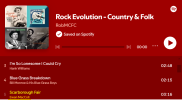Saddleworth2
Well-Known Member
Jointly credited to the songwriting partnership of Mick Jagger and Keith Richards, it was first released as a single on 6 May 1966, and later included as the opening track to the US version of their 1966 album Aftermath."Paint It Black" reached number one in both the Billboard Hot 100 and the UK Singles Chart. The song became the Rolling Stones' third number-one hit single in the US and sixth in the UK. Since its initial release, the song has remained influential as the first number-one hit featuring a sitar, particularly in the UK, where it has charted on two other occasions, and has been the subject of multiple cover versions, compilation albums, and film appearances. The song's lyrics are, for the most part, meant to describe depression. The song describes the extreme grief suffered by one stunned by the sudden and unexpected loss of a wife, lover or partner. It is often claimed that Jagger took inspiration from novelist James Joyce's 1922 book Ulysses, taking the excerpt "I have to turn my head until my darkness goes", referring to the novel's theme of a worldwide view of desperation and desolation. The song itself came to fruition when the band's leader Brian Jones took an interest in Moroccan music. It was their first song to feature a sitar instrumental.
Mick wrote it. I wrote the music, he did the words. Get a single together... What's amazing about that one for me is the sitar. Also, the fact that we cut it as a comedy track. Bill was playing an organ, doing a takeoff of our first manager (Eric Easton) who started his career in show business as an organist in a cinema pit. We'd been doing it with funky rhythms and it hadn't worked and he started playing it like this and everybody got behind it. It's a two-beat, very strange. Brian playing the sitar makes it a whole other thing.
Keith Richards (1971)
Paint it Black, The Rolling Stones
Mick wrote it. I wrote the music, he did the words. Get a single together... What's amazing about that one for me is the sitar. Also, the fact that we cut it as a comedy track. Bill was playing an organ, doing a takeoff of our first manager (Eric Easton) who started his career in show business as an organist in a cinema pit. We'd been doing it with funky rhythms and it hadn't worked and he started playing it like this and everybody got behind it. It's a two-beat, very strange. Brian playing the sitar makes it a whole other thing.
Keith Richards (1971)
Paint it Black, The Rolling Stones

